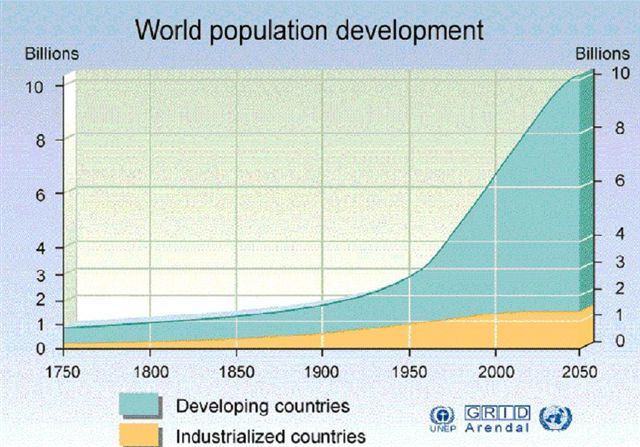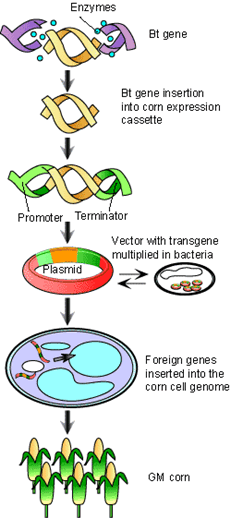It is a fairly reasonable statement to make in saying that the general quality of life for an Australian resident is rather luxurious. In comparison to the working class life in less financially wealthy and stable countries, the availability of what are classified as necessities and rights such as food, water and clothes are plentiful. So, with an increasing population and an ever-evolving standard of life, is it necessary for our agricultural industry to develop and explore alternative or unconventional methods to meet our demands?
The question explores three different issues, all of which should be treated and analyzed in a different fashion. Is agricultural innovation important for our quality of life? Are efficiency gains important for our standard of living? And is agricultural intensification important?
The first concept to be addressed is the idea that innovations within the agricultural industry are required to meet the demands of the population, which in turn, keep a stable standard of living. Possibly one of the first thoughts that would come to mind when the word ‘innovations’ is used is technology. In the twenty-first century technology is proving to be beneficial in many aspects of society and life that previously struggled. The great breakthroughs in medicine are proof of this; diseases that would otherwise be a death sentence are treatable and curable.
So how can technology prove to be beneficial and indeed, a necessity to the agricultural industry?
One answer is the use of genetics in science that enables crops to be modified as protection against pests or to adapt to an environment. The use of such technology and knowledge is a step in the right direction to ensure enough produce for the demands of our society. As well, creating the foundations to an agricultural industry that meets the requirements of sustainable development.
To be able to successfully produce crops that do not face the issue of pests is a huge milestone for agricultural innovations, with technology leading the way, efficiency gains are now a possibility without extra land.
Another area to explore within technology is the social impact the topic has. It appears that, although encouraged in every other industry and field, society seems to shun the idea of technology being used in context with agriculture. Why? The word ‘organic’ printed on labels seems to sell, highlighting society’s wish to have farming return to more traditional roots instead of branching into the unknown of new technology. According to the definition of organic, genetically modified crops go against the concept. And although organic may be a popular concept, it is simply not possible. Population is an important factor, with a drastically increasing population, there is a drastically increasing demand on food and clothing. If the agricultural industry were to simply return to the methods and technology used in the 1950’s, the population in Australia would have to as well. An evolving population requires industries to evolve in order to meet demand.
Further more, the concept of sustainable development also highlights the key role innovations in technology have in providing necessary produce throughout Australia. Sustainable development is being able to meet the needs of our society, without impacting the ability of future generations to do the same. Whilst ceasing any research into how technology can improve and benefit agriculture is not preventing future generations, we should be encouraging a perspective that provides a positive outlook on what could possibly be a necessity in feeding such a growing population. By 2050, the Australian population is estimated to reach 42 million, which is 20 million more mouths to feed than in 2012. It is an unrealistic expectation that the agricultural industry will be able to support such a population without growth and innovation.
Another topic that arises from the question posed is whether efficiency gains are important to maintain the same standard of living that is expected by today’s society. Just as whether or not technology should be encouraged in the industry, it all comes down to today’s population and sustainable development. By 2050, when the population has reached the estimated 42 million, a demand on land for housing will place even more pressure onto the agricultural industry. With harsh climate preventing major settlement and farming in many areas of Australia, a strain will be placed on the land that is accessible and useable. If the idea of efficiency gains in providing more crops to the same amount of land had been forgotten or merely abandoned, then the government, and society as a whole would have to choose between food and shelter; two of three basic necessities that all Australians expect in their standard of living. So the concept that the same standard of life in Australia could be kept without attention being brought to the topic of efficiency gains in the agricultural, and indeed, in any industry is completely implausible. Our growing population requires growing efficiency, which can be achieved through an admittance that an approach on sustainable development is a necessity in assuring the nations future. How we approach efficiency will also shape and benefit sustainable development. Through the use of genetic modification, and technology as a whole, the efficiency with which crops can be produced will increase, as will reliability on the quality of produce. A link between agricultural innovations and the necessity to improve efficiency seems to develop when either topic is introduced.
The third question that is evident is whether or not agricultural intensification is important for the quality of life that is taken for granted within Australia. As with the matter of efficiency, technological innovations and sustainable development are major themes when presented with such a question. Intensification can be thought of as the harvesting of more land, or, through genetically modified crops, the use of the same land but with a larger amount of successful crops. With a growing population, the agricultural industry cannot simply produce the same amount each year; it must grow with the population. And as the number of people multiplies, so too must the yield of our crops. Linking hand in hand with efficiency, intensification is a vital ingredient in supporting 42 million mouths all requiring food, keeping within the same standard as what is expected today.
Intensification would also prove a higher employment rate in agriculture, another factor that must be considered with sustainable development; unemployment rates already an issue in today’s society. The reality of intensification includes higher employment for the labour intensive work higher yields require. Not only is the issue of food addressed by the topic, but other issues sustainable development covers, which seem to be threatened by the increase in population. However, intensification does pose a risk to the workers health, as well as environmental issues; one such issue is the destruction of the Great Barrier Reef due to ethanol and other farming in the Burdekin and Gladstone areas. In our attempts to find a solution for our population, we must also focus on how to sustain our eco-systems.
If it was necessary to answer the question in short; yes, innovations, efficiency gains and intensification are necessary within the agricultural industry to sustain our standard of living. With a drastically growing population, it is not possible to sustain Australia’s people without finding ways to improve all three aspects as well as maintain and possibly improve the standard of life that is expected. Innovations, efficiency and intensification all link together to create an issue that must be faced, and provide some insight into the answer of sustainable development.


No comments:
Post a Comment